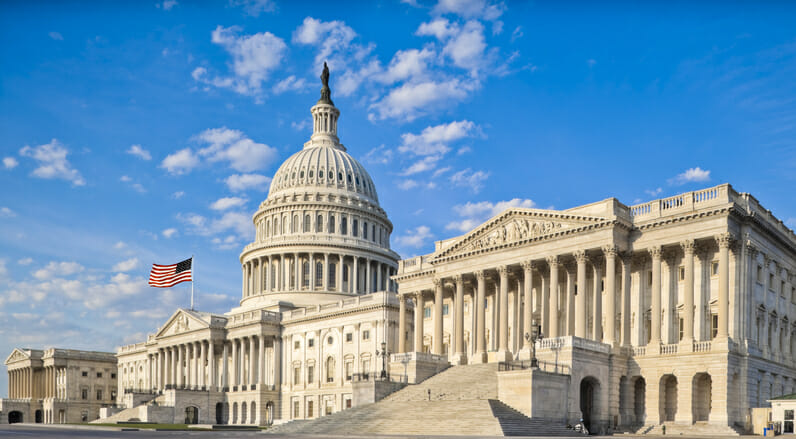

The SECURE 2.0 Act was passed by Congress as part of a year-end spending bill. This retirement plan legislation is an expanded version of the SECURE Act of 2019, which aims to improve retirement laws on savings accounts. The bill was signed into law by President Biden on December 29, 2022. Here’s what you need to know about the sweeping changes for retirement benefit plans.
A financial advisor can help you plan for RMDs and limit your tax burden when you start taking them. Find a trusted fiduciary advisor today.
The SECURE 2.0 Act is intended as an upgrade to the Setting Every Community Up for Retirement Enhancement (SECURE) Act of 2019. It was passed by Congress on December 23 as part of the Consolidated Appropriations Act of 2023. President Biden signed the legislation into law just six days later.
The expanded legislation makes significant changes to qualified retirement plans. Among these, the SECURE 2.0 Act increases the age from 72 to 73 in 2023 (and 75 in 2033) for required minimum distributions (RMDs). In 2022, RMDs are the minimum amount of cash a retirement plan account holder is required to withdraw annually before they reach the age of 72.
The SECURE 2.0 Act also has provisions to improve retirement savings accounts in the U.S., which eliminate RMDs for Roth accounts in 401(k)s and 403(b)s, among other provisions beginning in 2024.
The House passed its version of the SECURE 2.0 Act in late March 2022 as the Enhancing American Retirement Now (EARN) Act.
The EARN Act aimed to help part-time workers participate in 401(k) plans as well as saver’s credit for low and middle-income workers. It also offered easier access to cash with penalty-free withdrawals that are needed during urgent circumstances. These included domestic violence, terminal illness and widespread events like natural disasters.
“The EARN Act expands opportunities for Americans to increase their retirement savings and improves workers’ long-term financial well-being,” said Senate Finance Committee member and Republican Senator Mike Crapo (R-Idaho). “Every member of the Finance Committee had a hand in drafting this legislation, and the broad range of ideas incorporated into the final bill is a testament to the power of bipartisanship.”

Here are seven notable changes that will be enacted to law by the SECURE 2.0 Act:

President Biden signed the SECURE 2.0 Act into law on December 29, 2022. This legislation makes notable changes to qualified retirement plans. These will increase the age for RMDs, make enrollment and escalation automatic for most new 401(k)s and 403(b)s, and increase tax credits for low-income retirement savers, among other changes.
Photo credit: ©iStock/drnadig, ©iStock/LightFieldStudios, ©iStock/slexp880
Read More About Retirement



More from SmartAsset
SmartAsset Advisors, LLC ("SmartAsset"), a wholly owned subsidiary of Financial Insight Technology, is registered with the U.S. Securities and Exchange Commission as an investment adviser. SmartAsset's services are limited to referring users to third party advisers registered or chartered as fiduciaries ("Adviser(s)") with a regulatory body in the United States that have elected to participate in our matching platform based on information gathered from users through our online questionnaire. SmartAsset receives compensation from Advisers for our services. SmartAsset does not review the ongoing performance of any Adviser, participate in the management of any user's account by an Adviser or provide advice regarding specific investments.
We do not manage client funds or hold custody of assets, we help users connect with relevant financial advisors.
This is not an offer to buy or sell any security or interest. All investing involves risk, including loss of principal. Working with an adviser may come with potential downsides such as payment of fees (which will reduce returns). There are no guarantees that working with an adviser will yield positive returns. The existence of a fiduciary duty does not prevent the rise of potential conflicts of interest.